(Corrected at 1:20pm, 7 June 2011)

THE vocal and articulate Lim Kit Siang many of us know in Parliament, through his blog and from news reports, is reticent when it comes to talking about himself. The veteran politician is slow to reveal what makes him tick or where he draws his ideals and inspirations from. Yet, Lim himself has been called an inspiration by many and is cited as the reason they joined the DAP.
What comes through however, even during a brief interview, is Lim’s unwavering devotion to change things for the better. This was Lim’s passion even as a teenager, when he published a school magazine with his friends where they would often write articles questioning the status quo.
Freedom of expression is one human right Lim has never wasted. Exercising it got him detained without trial twice under the Internal Security Act (ISA); in 1969 for 18 months and in 1987 for 17 months. He was also charged with breaching the Official Secrets Act for exposing corruption in a government arms deal.
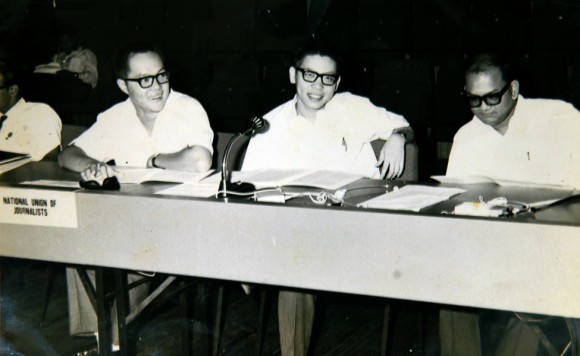
After a short stint as a journalist, Lim stood for election in the Kota Melaka parliamentary seat in the third general election in 1969, and won. Since then, Lim has stood in every general election in different constituencies, winning every time, except for 1999. He has also been a state assemblyperson concurrently during some of these parliamentary terms. He has been with DAP since it was registered in 1966, and was its secretary-general from 1969 until 1999. He was then elected national chairperson and served until 2004, when he refused re-appointment and was succeeded by Karpal Singh.
In an interview at his office at DAP’s national headquarters in Kuala Lumpur on 23 May 2011, Lim tells The Nut Graph about being Malaysian first.
TNG: When and where were you born?
I was born in Batu Pahat, on 20 February 1941.
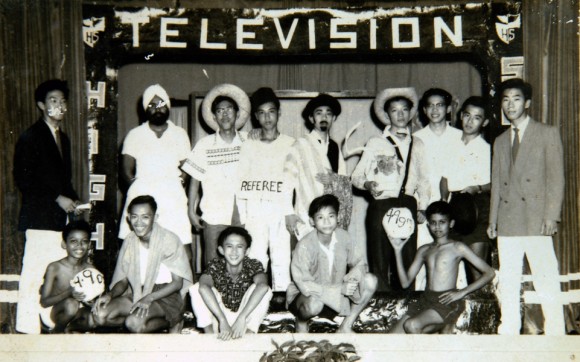
What are some memories you have of your childhood in the place where you grew up?
(Long pause) Batu Pahat was a quiet town. With [some Form Two] classmates, we did what we thought worthwhile doing. [We started a class magazine to exercise self-expression]. Inevitably, we faced obstructions and obstacles along the way. [Editor’s note: In The Right to Differ: A biographical sketch of Lim Kit Siang, Lim said the magazine initially started as an annual publication, then was produced bi-monthly by the time he and his friends were in Form Four. Their enthusiasm in producing the publication led to clashes with the school principal.]
Then, there were the usual picnics and school excursions.
In my family, I was the youngest child. I had two older brothers and an older sister, who was about 15 years older than me. I’m not sure but there might have been one other child who was given away. As a family we did not go out much or do many activities together.
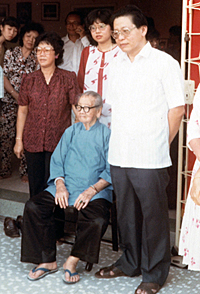
What did your parents do?
I have [always] had difficulty describing my father’s occupation. I would say that he was an “agriculture technician”. That is, he castrated pigs and poultry so that they could grow faster for consumption. There were no steroids in those days, so castration was the natural thing to do.
My mother was a housewife.
I’ve heard a story about how your mother taught herself to read. Do you remember how she did it?
She taught herself how to read Mandarin, but I don’t know the details.
Do you have any memories of living through World War II as a child?
I do remember the planes. A most memorable scene was one of soldiers marching down the main street in Batu Pahat town. I just remember the many planes flying above and the marching soldiers associated [with that]. I was only about four at the time.
Can you trace your ancestry? What generation-Malaysian are you?
I’m first-generation. I was born here. [My ancestors] came from a place [in China called] Dongshan [in Fujian province], which I visited about two or three years ago. It was a very poor, backward place. [Editor’s note: Lim and his son Guan Eng visited their ancestral home in Fujian in Nov 2008, and this was reported in the Malaysian Chinese-language press.]
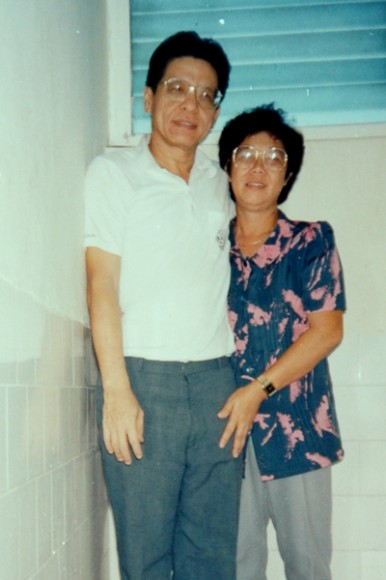
Was this on your father’s side? What about your mother?
I think they might have been from the same area.
Did they tell you why and how they made the journey to Malaya?
No, they never told us why they came here.
What stories by your parents, grandparents or older relatives do you still remember and hold to?
Not much.
Growing up, how and when did you first become conscious of race?
In school, the concept of race was not of much salience. There was no race consciousness. It didn’t really impinge on our consciousness. But over a period of time, following political developments, there was a sense that the politics of race was becoming more and more significant, and you became more conscious of it. But as a youth in school, it had no salience.
So you lived through 13 May 1969, and that was the same year you won the Kota Melaka parliamentary seat in the general elections. What are some significant memories of that time?
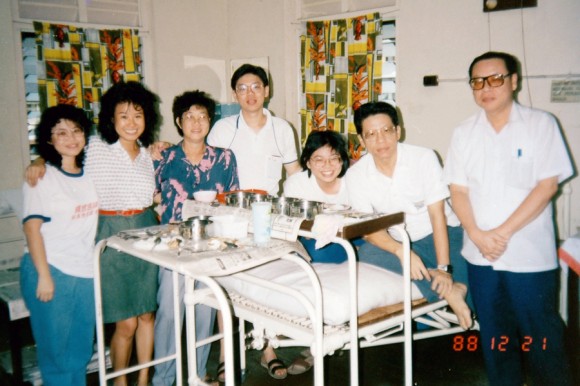
The election was on 10 May, a Saturday. The 13th was a Tuesday. I was not in Kuala Lumpur (KL), I was in (corrected) Sabah. So I was not fully attuned to what was happening in KL because it was not the hub of my political activities, although I did come up to campaign.
The riots of 13 May came as a total shock and surprise. The first time I heard of it was at a rally in Kota Kinabalu. Somebody whispered to me that trouble had broken out in KL and that there was a curfew but we didn’t have the details. I had flown to Kota Kinabalu on the morning of the 13th to help other candidates there, because elections in (corrected) Sabah and Sarawak were to be held two weeks after 10 May. The elections in Sabah and Sarawak were suspended and postponed because of the riots in KL.
[Editor’s note: Lim was detained under the ISA in 1969 upon arriving at the then Subang airport after flying back from Kota Kinabalu via Singapore a few days after the riots. He had been warned not to return to Peninsular Malaysia as he had been marked for arrest.]
The sense of shock you and others had — wasn’t there already economic disparity and racial alienation in the run-up to 13 May?
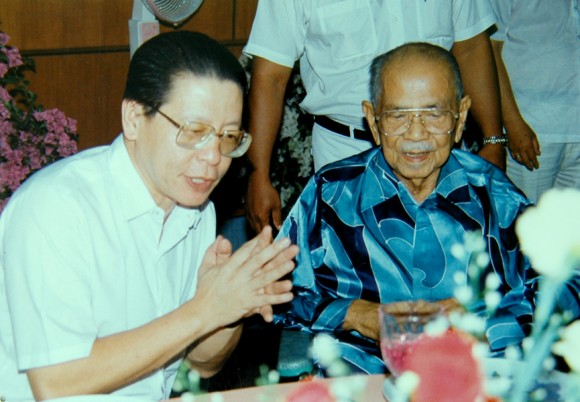
The riots and killings were completely unimaginable. Yes, there was already a sense of economic disparity and alienation, but still, that was no reason for racial riots to happen. Something like that should not have happened. Up till now nobody knows the actual causes of 13 May, although I have been accused of being one of the ring leaders, as if I was there, which is completely untrue. As you know, I was in Malacca, where I ran for a parliamentary seat.
Until now, we have not learnt the lessons of 13 May. There is a need to find out how and why it happened. Not because we want another 13 May, because nobody will gain anything out of it.
How has Malaysia changed since 1969?
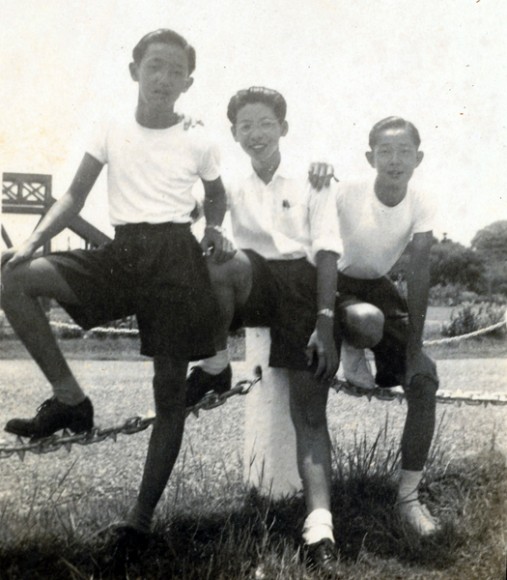
There are pluses and minuses, and in some aspects, there is progress, while in other aspects, we’ve moved backwards. We may be economically more developed now, in terms of Gross Domestic Product per capita and by other material indicators. Yet, we have allowed other countries to overtake us. [We have not] fully exploited our national resources and potential. The subject of the day is the brain drain. It is not just a question of talent or Malay [Malaysians] leaving the country but of losing Malaysians who could have helped develop this country. Why is this happening? It is hampering our growth.
The question of national unity — there is a big question mark. Are we more united or divided? In the days before Merdeka, the saliency of race was not felt. Now [race] is [part of] every [aspect of our] consciousness. I think it was from the 1970s onwards, that the sense of whether one is a Malay [Malaysian] or not, a bumiputera or not, began to hit home because of issues such as [the awarding of government] scholarships, education opportunities and employment.
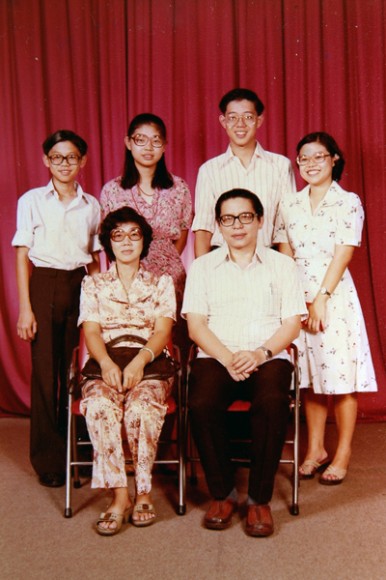
What will it take for Malaysians to move beyond race?
We need to respect and recognise each other and to accept each other as fellow human beings and fellow citizens. There must be political will to do so, only then will the right structures fall into place. Otherwise, the structures will continue to crumble. Our key institutions are coming apart. There must be political will to save Malaysia from going down the slippery slope.
What does your Malaysian identity mean to you?
I’m a Malaysian, first and last. I’m proud to be a Chinese, and as I’ve said in Parliament, I’m proud to be a Chinese, but a Malaysian, first of all.
Nobody is suggesting that anyone should give up their ethnic identities, but we should have this common bond where we agree that we are first of all, Malaysians. I will accept the definition of 1Malaysia as being Malaysian first, then race, religion, or geographical origin second. My quarrel with 1Malaysia is not that it is wrong but that it is empty sloganeering.
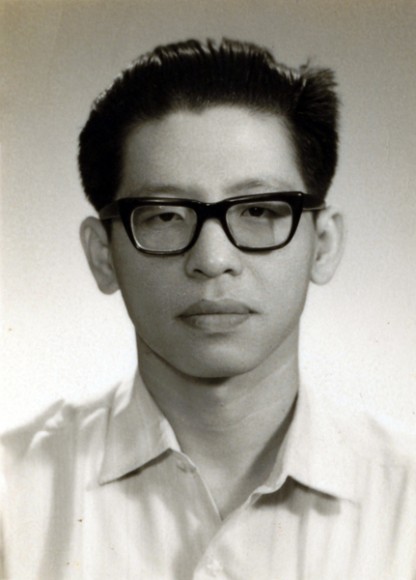
What aspects of your identity do you struggle with as a Malaysian, if any?
None. I don’t think any Malaysian should have to struggle with aspects of their composite identities. There is nothing that should bar you from being Malaysian first.
What are your hopes for Malaysia?
I still hope it’s not too late to save Malaysia because Malaysia is a country of great promise and potential. Malaysians of all races and religions should come together to build a progressive nation which can then make its contribution to international society. ![]()
The book Found in Malaysia, featuring 50 of our best interviews plus four previously unpublished ones with Datuk Zaid Ibrahim, Tan Sri Rafidah Aziz, Datin Paduka Marina Mahathir and Ramli Ibrahim, is available at all good bookstores for RM45.


Kamal says
“Malaysia is a country of great promise and potential.”
This is true for many reasons and Lim Kit Siang and his son have through their own lives (as well as many others) represented this truth.
Thank you for keeping up the struggle of having an opposition when for a long time, a national level opposition was in wanting. For me winning is not the issue- rather what is important is participating in the game.
And despite the hardship to your family and to yourself, over thirty years you stayed on in the game. That demonstrates conviction and dedication to your beliefs and it deserves respect.
Idris says
“I’m a Malaysian, first and last. I’m proud to be a Chinese, and as I’ve said in Parliament, I’m proud to be a Chinese, but a Malaysian, first of all.”
I don’t mean to run down this statement, but up to now I still cannot help but wonder – why should you, Mr Lim Kit Siang, be proud to be Chinese? I see no reason why one should be proud of being of a certain race. In fact I think it leads to a sense of superiority – justified superiority, perhaps, though hopefully not (else meritocracy will never be the ethical choice). It can even lead to racism, I believe.
I recall another commentator saying in another thread that some Muslims might, in some sense, be proud of having Arab blood somewhere down the line. While this thinking may be held by some Malay Muslims here in Malaysia, I personally think such pride to be utterly silly, stupid even.
Even sillier are those Muslims who claim to be the Prophet’s descendants. So what?!
So someone, anyone, please enlighten me as to why one should be proud, in any sense at all, of being Chinese. Or Malay, or Indian, or of mixed race (more Malaysian? Yeah, whatever). Or of the lineage of some great historical person.
Not Mixed Up says
A person can always be proud of and be patriotic to the country of his/her birth.
At the same time it does not mean they lose the right to proud of his or her roots, whether they be Malay Indian or Chinese or mixed blood. This also does not mean it is a feeling of superiority, which is what Umno is promoting, isn’t it?
Malays could be justly proud of their roots from Indonesia, which has a long history of anti-colonial struggle and a developed culture. You can proudly display your culture as long as you do not do what Umno is doing: to use this as club to hammer other races.
Yeo Kien Kiong says
I believed that being proud of one’s race or background is a personal expression of one’s belonging, and how cultural tradition and the ever-changing sands of time have developed a sense of awareness and progression for a better future. In Malaysia, I am a Malaysian despite being a “fair skinned” person as well as having ancestors that were from Arabic countries.
And it is also historically significant because we can learn how certain people manipulate one’s pride to cast fear upon others in the name of power and wealth, and so that future generations will understand the mistakes that we have made.
Kong Kek Kuat says
@ Idris
Well, if, for example, the ‘race’ you are classified as is the reason why an institution as powerful as the Malaysian government implements measures to restrict your competitiveness in economics and education, or has the highest cut-off points for admission into any public university in Malaysia, or has managed to do better despite (not because of) the former reasons, or whose daily language has become an optional mandatory language for all those in diplomatic schools around the world, or…
There are more, but you get the drift.
Wouldn´t you be proud? I would. It definitely beats being proud of fooling oneself into believing that one belongs to a ‘race’ which contributed to mathematics, don´t you think?
It definitely comes from a sense of superiority through seeing how one´s ‘race’ has contributed to the development of the world — past, present, and definitely in the future, insya Allah. It will lead to racism if others are not seen as contributing (less, equal, or more, it doesn´t matter) with effort and earning their respect. For example, the Dayaks and the Orang Ulu on the whole have more or less earned the respect of others in Sarawak — they are definitely not spoken of in the same light as the Malay-Malaysians.
You should actually be proud that the pendatang (including the Indians), with their historic background, are more than willing to adopt some or more of adat Melayu.
But I believe Mr Lim Kit Siang (or Mr Karpal Singh) should reply to this comment. I would also like to know what they think.
aiyo says
Is it wrong to say one is proud of being a xxxxx?? To each their own. You can say that you were a bad person in your schooldays and still be proud about it, or you can say you did not score good grades in school and yet still be proud of it.
If saying those things is silly to you, don’t do it then.
Idris says
Based on my (unfortunate) experiences, I am strongly of the belief that ethnic/cultural pride is practically a sin, to be avoided like the plague. Especially in our country. If you’re a Chinese/Indian/Malay/some combination thereof etc then you’re just that, end of story.
Now, if for example you mastered Latin and Persian despite spending your entire life in some ulu part of Malaysia without running water and electricity, then you have justification for being proud.
You can speak four languages because, for example, your Tamil-only speaking parents sent you to a Chinese school? Nothing to be proud of here, not in my book.
And so on for ethnic pride.
Kong Kek Kuat says
@ Idris
Ya… I agree with you once again.
Imagine if you were aided by crutches all your life… from birth to death… and that nothing you achieved today can be truly called yours. Well, I don´t know about you, but it´s very hard for me to imagine, because I´m a very proud person.
Anyway, I wouldn´t ‘menepuk air’ in public if I have crutches.
JW Tan says
I’m proud to be of Chinese heritage. By this I mean that I’m proud to speak the language, I’m proud that I feel comfortable and familiar with the mother culture whenever I visit China, I’m proud that I still observe most of the traditions and celebrations that I grew up with.
At the same time, I’m proud to be a trilingual Malaysian, who’s familiar with Malay and Indian culture, who can cook Malay, Indian and Chinese dishes (sometimes all in the same meal), who knows the difference between say, duit raya and angpow. I’m proud to love the beautiful country that I grew up in.
Proud means not hiding it. Proud means standing up and saying, yes, this is my heritage, this is what I am, and I don’t care if anyone disapproves.
[…] The difference [is] between being proud of sharing genes (no effort on the person’s part, and quite pointless) and being proud of maintaining one’s heritage and identity, which requires some effort and is worth sustaining.
Idris says
[…]
I would guess you have not met the same people I have, else you might have a different view of things.
As for heritage and identity requiring effort and worth sustaining – I don’t think I can agree with this. Why should you feel proud of being able to speak a Chinese/Indian/whatever dialect (especially if you were born in an environment that gives you an advantage in mastering that language)? Why should you feel proud at being able to sense comfort and familiarity with the ‘mother culture’ whenever you visit China (especially if you were born…)? Why should you feel proud of being a trilingual Malaysian (especially if…)? etc.
I disagree completely with your definition of what it means to be proud. I am not going to offer a (philosophical) definition here. […] I guess at this stage we can only agree to disagree […]
JW Tan says
There’s no reason whatsoever to be proud of one’s genes. That is a lottery. Skills and knowledge acquired over a lifetime, however, are different. Agreed, sometimes one’s background confers an advantage in acquiring certain skills, but I know of no background that confers full permanent fluency in several different languages without the person having to lift a finger. If you think otherwise, please share.
Maintaining one’s cultural identity and heritage requires almost as much effort. Hardest of all is to appreciate them in the context of other people’s cultural identity and heritage. Therefore Lim Kit Siang has more to be proud of than Ibrahim Ali. It’s pretty obvious who’s made the greater effort.
kate says
Thank you, Mr Lim, for the many sacrifices you and your family have made for us Malaysians.
Sarawakian First says
Lim Kit Siang is a great Malayan and we prefer to be Sarawakians first.
Independence for Sarawak!
Thank you!
koko says
Yes, independence from DAP.
orang lama says
It is remarkable that for many years after 1957, the Chinese had to march with banners to “prove” they are “Malayans” (later Malaysians). They had to show the world that they are Malaysians first and Chinese second. Now the Malays have come out in the open to declare that they are Malays first and everything else last. It is not surprising because even in the 60s and 70s, the Malays have always shown themselves to be Malays first.
Even with the recent display of violence perpetuated by Muslims in the Middle East and against the West, no Muslim has ever marched down main street to declare his or her anti-violence stand. I read that as a hedging move. If the ultras win, the moderates will also gain; if the moderates win, then they will never be losers. This is the worst sitting-on-the-fence attitude by the modern Malays. Either way they want to “win”.
It is time for the Malays to show the world and to the non=Malays where they stand. It is time for the Malay leaders to make a retreat and allow the country to go back to the plural society it started with.
Farouq Omaro says
Lim Kit Siang is the most consistent politician. He is the best politician around.
Yee says
The Lims along with DAP are arguably a legend in Malaysian politics. Decades have passed and yet their consistent call for a more liberal, fair, and meritocratic Malaysia remains unchanged (and is still relevant moreover). Personally, he’s the kind of guy that I would like to see as a PM or at least DPM. Enough of [50 years of] Umno.
Kong Kek Kuat says
@ Yee
There are others apart from the Lims and the DAP who have contributed to Malaysian politics. For example, the Singhs in DAP also have many followings, and have been arguably more strident than the Lims in calling for all that you´ve mentioned in your comment.